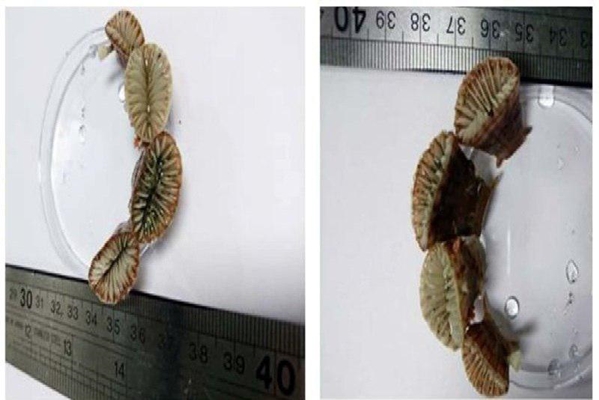During a sampling conducted in the fifth patrol of the Persian Gulf Explorer at a depth of about 90 metres in the western part of the Strait of Hormuz, a species of isolated corals called Cynarina lacrymalis with densities above 200-300 in every square metres were found in sandy habitats. The existence of this type of corals had not been reported in the Persian Gulf earlier.
The isolated coral species belong to hard corals, which do not form colonies unlike coral reefs. This species is mostly seen in the Indian Ocean region and the western Pacific, at the depth of 400 metres.
The existence of this species has also been reported in the Red Sea, the Gulf of Aden, Indonesia, Japan and eastern Australia, but this is the first report of the presence of this species in the Strait of Hormuz and at high densities.
Based on the classification of the International Union for Conservation of Nature (IUCN), the conservation status of the discovered species is ‘near threatened’.
“Near-threatened species” are at risk, but they require further attention and protection in the future. Therefore, it is imperative to look after them with more attention and check their population annually.
In addition, this type of coral has a high resistance in face of environmental changes, therefore; aquarists are very attentive about them.
Coral reefs are important because of the diversity of animal species living in them. Since many creatures’ lives depend on them in different periods of time, they are the main source of food for fish, shrimp and other important species.
But factors such as acidification, oceans temperature rise, pollution, and water haze lead to the death of coral reefs. This as their safety protects marine ecosystems, and if they are eliminated, many marine species are affected.
